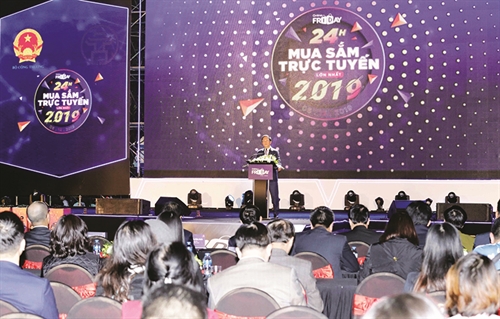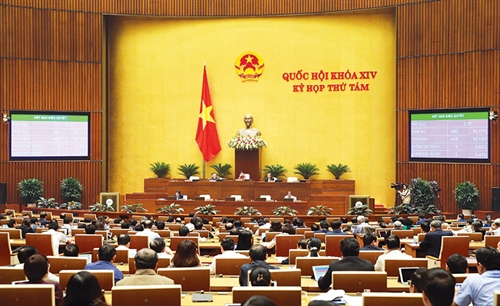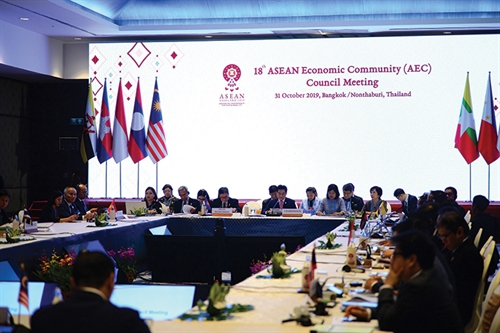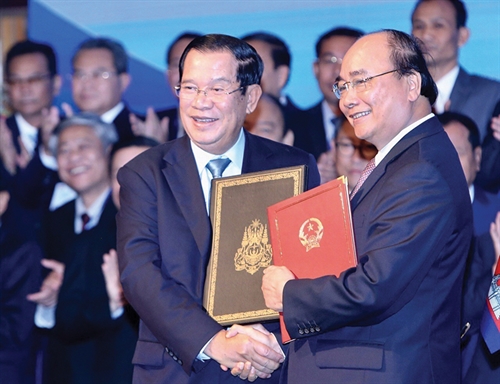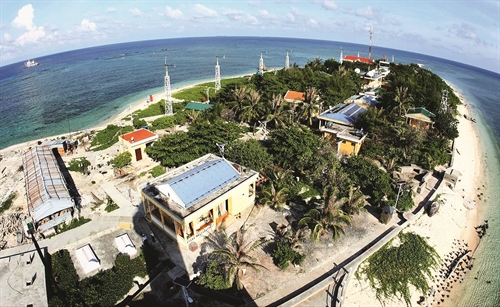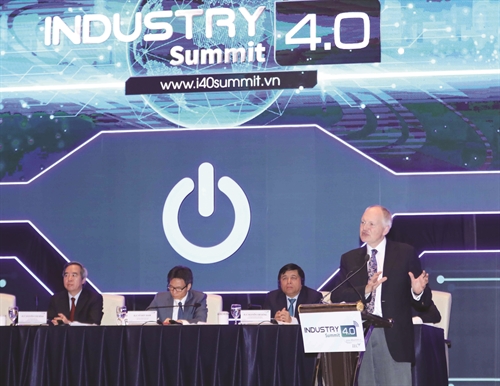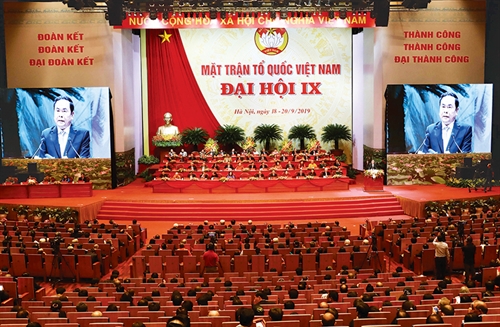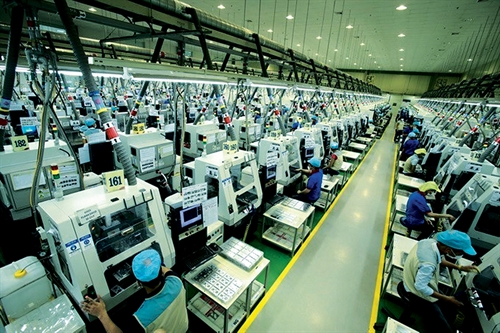* Selected by VLLF
>>Top 10 legal documents in 2018
1. Labor Code
With 220 articles arranged in 17 chapters, the 2019 Labor Code contains a lot of notable changes.
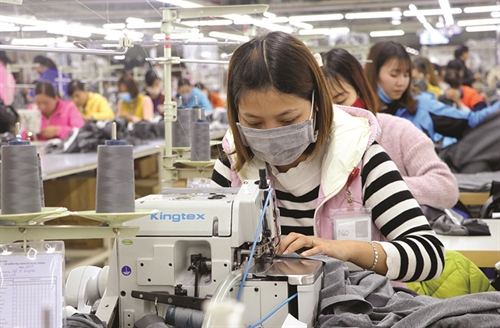 |
| Producing garments at the RoK-invested Viet Pan-Pacific Company Ltd. in Nam Truc district, Nam Dinh province__Photo: Van Dat/VNA |
Compared to the 2012 version, the new Code adds several provisions applicable to employees, which is expected to better protect laborers’ rights. Specifically, employees will be allowed to unilaterally terminate their labor contracts at any time and without reason. They only need to inform their employers of the intention to quit jobs 45 days in advance, for those working under indefinite-term contracts, and 30 days, for those working under definite-term contracts.
2. Law on Exit and Entry of Vietnamese Citizens
Passed on November 22 and set to take effect on July 1 next year, the first-ever Law on Exit and Entry of Vietnamese Citizens allows passport applicants possessing citizen identity cards to apply for passports at any immigration control agencies of the provincial-level police departments, instead of the agencies of localities where the applicants permanently or temporarily reside as at present.
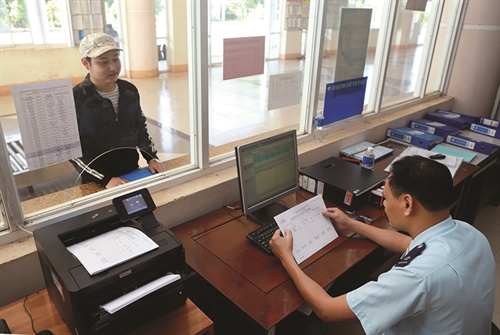 |
| Carrying out entry-exit procedures at Le Thanh international border gate, Gia Lai province__Photo: Hoang Hung/VNA |
Moreover, Vietnamese citizens aged over 14 years may opt to have their passports embedded with electronic chips that allow them to make use of the automated self-service.
3. Law on Securities
The Law, which will replace the 2006 Securities Law and its 2010 amendments as from January 1, 2021, requires an enterprise that wishes to make an initial public offering to have a charter capital at the time of registration of the offering of at least VND 30 billion, three times higher than the currently required level.
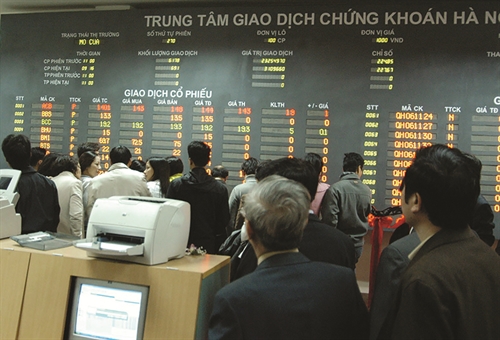 |
| Hanoi Stock Exchange__Photo: Internet |
The issuing enterprise must also be profitable in the two consecutive years prior to the year of registration, and at the same time, have no accumulated losses by that year.
4. Law on Tax Administration
The Law, which is scheduled to come into force on July 1 next year, prescribes for the first time tax administration of e-commerce activities, governing also foreign traders selling goods or providing services into Vietnam via e-commerce platforms without permanent establishments in the country.
Under the 152-article Law, taxpayers may make electronic tax declaration, tax payment and transactions with tax administration offices and related agencies and organizations if technical conditions permit.
5. Law on Education
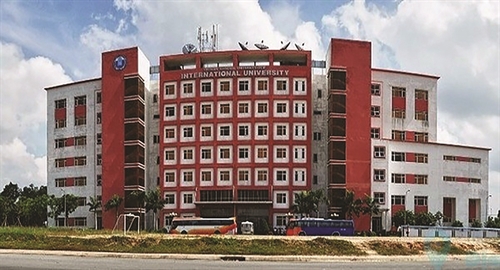 |
| The premises of the International University - Vietnam National University, Ho Chi Minh City__Photo: Internet |
With 115 articles arranged in nine chapters, the Law prescribes forms of foreign investment and cooperation in education in Vietnam, including joint education and training, establishment of representative offices, establishment of branches, and establishment of education institutions, among others. The Law will take effect on July 1 next year.
Issued on January 1 following the spirit of the series of Resolutions 19 of previous years, the Resolution sets targets for improvement of the business environment and national competitiveness for the 2019-21 period, improving the country’s positions in business environment and competitiveness rankings of WB, WEF, WIPO and UN.
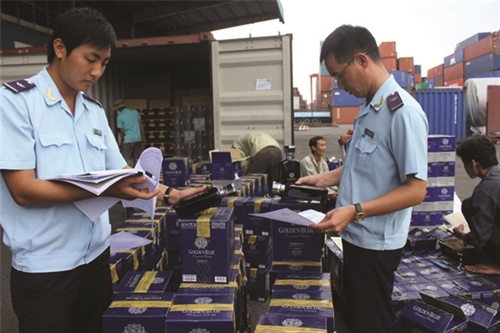 |
| Customs officers check imports__Photo: Internet |
It is also targeted to improve the country’s business environment, increase the number of newly established enterprises while minimizing the rate of those dissolved or suspended operation; and decrease input costs, opportunity costs and unofficial costs for enterprises and citizens, contributing to fulfilling socio-economic development goals set by the Government.
7. Decree 57/2019/ND-CP
Issued on June 26, the Decree promulgates the preferential import and export tariffs to implement the Comprehensive and Progressive Agreement for Trans-Pacific Partnership (CPTPP) during 2019-22, and conditions for enjoyment of preferential import and export tariff rates under this Agreement.
Under the Decree, to enjoy special preferential import duty rates, imports must be included in the Special Preferential Import Tariff and imported into Vietnam from the CPTPP member countries where the Agreement has come into force. In addition, they must be transported into Vietnam from a CPTPP member state where the Agreement has entered into force and satisfy rules of origin and backed with valid C/Os.
8. Decree 68/2019/ND-CP
The Decree, which provides the management of construction investment costs, states that investment deciders and project owners will be responsible before law in case they decide to implement projects when their funding plans remain conformable to their implementation plans, leading to an increase in project costs or delay in project implementation, and consequently, resulting in loss or waste of state funds.
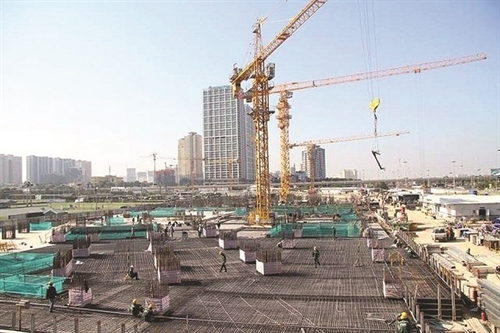 |
| On the construction site of an urban center in Thai Nguyen province__Photo: Internet |
The Decree took on October 10, 2019, in replacement of Decree 32 of 2015.
9. Decree 85/2019/ND-CP
Coming into force on January 1 next year, the Decree specifies administrative procedures under the National Single Window (NSW), ASEAN Single Window (ASW) and specialized inspection for import and export goods.
10. Prime Minister Decision 1068/QD-TTg
The promulgation of the Decision on August 22 marks the first time ever Vietnam has adopted a national strategy for intellectual property rights.
Under the Decision, which approves the intellectual property strategy through 2030, by that time Vietnam will be one of ASEAN’s leading countries in terms of innovation and IP rights protection and exploitation. Intellectual assets of Vietnamese individuals and organizations will increase in quality and quantity, further improving Vietnam’s rankings in the Global Innovation Index.- (VLLF)

